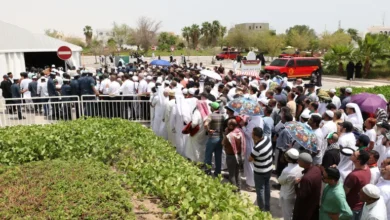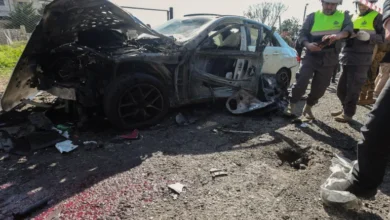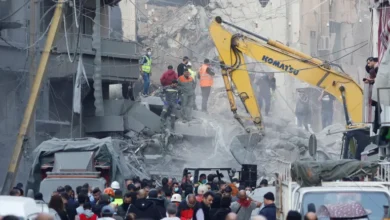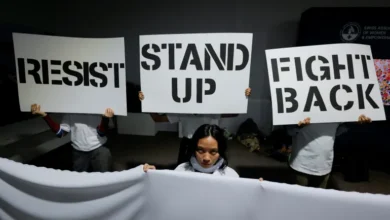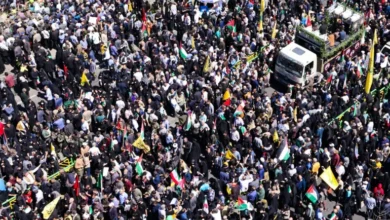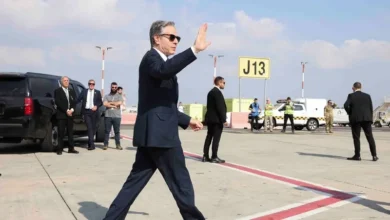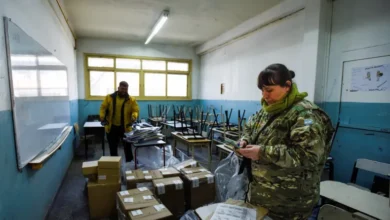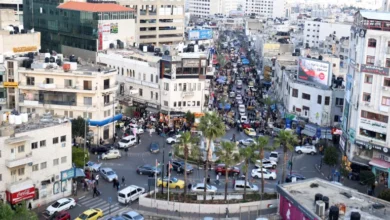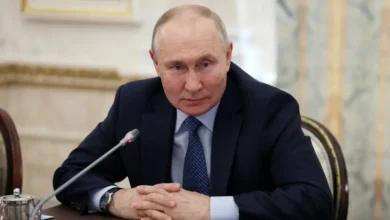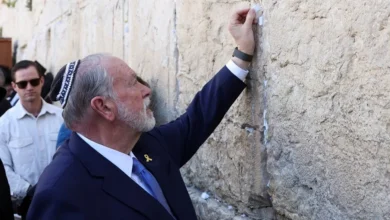Analysis: Netanyahu trying to establish new security arrangement via Lebanon bombings
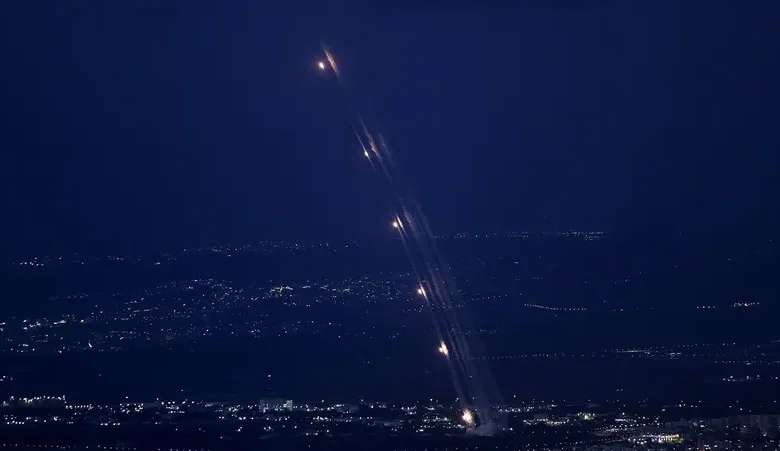
Officials and analysts believe Israel’s embattled Prime Minister Benjamin Netanyahu is seeking to escalate with Lebanese Hezbollah to force them to accept a new security arrangement along the Blue Line.
Lebanon suffered the deadliest day in decades on Monday after Israel stepped up its aerial assault against Hezbollah on the heels of an intelligence operation that penetrated the group’s long-hailed covert communications network.
The Israeli military claimed on Monday that it carried out over 800 strikes on various Hezbollah targets in the south and throughout the Bekaa Valley, which Beirut said killed more than 350 people, including 24 children and 42 women. Initial reports also indicated that an Israeli strike in Beirut targeted Hezbollah’s commander for south Lebanon. Hezbollah later said the target, Ali Karaki, was “safe.”
While the cross-border exchanges have been taking place since last October, Al Arabiya English spoke to several officials and analysts to better understand why the decision to escalate them further was made almost a year later.
US officials have said they do not support any form of land invasion of Lebanon, and they do not believe a military campaign will force Hezbollah to back down. A senior State Department official told reporters on Monday that they couldn’t recall any escalation that ended up leading to de-escalation in recent years.
Randa Slim, a senior fellow at the Washington-based Middle East Institute (MEI) think-tank, said there were only two ways for Israel to achieve its objective of returning citizens to the north: diplomacy contingent on a Gaza ceasefire and a ground incursion into southern Lebanon. “Either is unpalatable to Netanyahu,” Slim told Al Arabiya English.
Despite repeated US opposition to any large-scale operation in Lebanon out of fear that a regional war could erupt, Netanyahu decided to push ahead and approve Israeli plans to bombard Lebanon.
On Monday, Iran’s president expressed willingness to open new nuclear deal talks with the West. “Don’t forget, behind all this, Iran is sending signals that is ready to negotiate [with the West]. Netanyahu is either trying to curtail the talks or to change the reality on the ground before negotiations in order to be in a better position,” said Joe Bahout, the director of the Issam Fares Institute at the American University of Beirut (AUB).
The Israeli premier, wanted by the International Criminal Court (ICC) for war crimes, has so far stopped short of approving a land invasion in what some Israeli officials believe will allow for the creation of a so-called security buffer zone free of Hezbollah weapons and fighters. But officials familiar with US intelligence told Al Arabiya English that they had still not seen any ground preparation by the Israeli military to suggest a ground invasion was forthcoming.
Richard Goldberg, a national security adviser aide in the Trump administration, said in a post on X that “Israel has an opportunity to fundamentally reset the chess board.”
As recently as last week, US officials traveled to Israel to meet with Netanyahu and discourage him from making escalatory decisions. Days later, blindsiding the Biden administration, the Israeli intelligence community carried out an attack on Hezbollah’s communications network by detonating thousands of pagers and walkie-talkies.
Washington remains adamant that it had nothing to do with the two-day attack that also wounded the Iranian ambassador to Beirut and other Iran-backed fighters in Syria and Iraq.
Next, the Israelis struck a building in the southern suburbs of Beirut. They killed a top Hezbollah commander and 11 other senior commanders from the group’s elite Radwan Forces unit during a meeting reportedly being held underground. The US was also not notified beforehand but said it did not regret the operation that killed one of the masterminds behind the 1983 bombings on the US Embassy in Beirut and US Marine Barracks in the country.
With Hezbollah seemingly on the backfoot after its leader admitted last week’s attacks were “a big blow,” Israel stepped up its air strikes across south Lebanon and near the Lebanese-Syrian border. It also began targeting villages and towns for the first time since October.
In response, Hezbollah said it would not stop attacking Israel until a Gaza ceasefire was reached. So, Netanyahu and his government again intensified strikes, which led to Monday’s deadly attacks. It was the deadliest day since the 15-year Lebanese civil war between 1975 and 1990.
US officials said the Israelis began notifying Washington about the targets of their strikes over the weekend.
Bahout said there were two other things to consider when explaining Netanyahu’s motives. One is applying maximum pressure, increasing it to a level that Hezbollah’s social environment can’t handle, forcing the group to start negotiating a new security arrangement more favorable to Israel.
The last deal, UN Security Council Resolution 1701, established after the July 2006 war, saw the border relatively calmer than in any previous period.
However, it was never fully implemented by either side, and Hezbollah was able to hold on to its weapons under successive government policy statements on the permission of Lebanese citizens to “resist” occupation by all means. Meanwhile, Israel never withdrew from pockets of land as stipulated by the United Nations.
More than a security arrangement, Bahout said Netanyahu’s real aim was to create a no-man’s land in the south up until the Litani River, leaving Hezbollah without any civilian population or support around it. This could allow the Israelis to “bomb methodically and change the equation.”
Could this force Hezbollah to budge and accept a new deal?
“I think it’s farfetched and a bit too soon to say,” he said, adding that he expected more Hezbollah retaliatory attacks deeper into Israel to try to show that the cost could be high. “But I fear that we’ve entered a long period of strikes and counter-strikes with a lot of harm to Lebanese civilian infrastructure until the US elections. And after, Netanyahu will see who is in [the White House] and what kind of bargain he will bring to the table,” Bahout said.
David Schenker, the top US diplomat for the Middle East during the Trump administration, highlighted that it was Hezbollah who initiated the attacks in October and saying it would continue until a formal ceasefire was reached in Gaza.
Schenker, now a senior fellow at The Washington Institute for Near East Policy, said Israel prefers a diplomatic arrangement to de-escalate and allow the tens of thousands of Israelis to return to their homes in the north. But, he added, Israel is prepared to raise the cost for Hezbollah. “As the nominal sovereign of Lebanon, this war is Hezbollah’s choice. And at any point, Hezbollah could choose a negotiated solution,” Schenker suggested.
Schenker also recalled Hezbollah Secretary-General Hassan Nasrallah’s comments after the 2006 war. After the last war ended, Nasrallah said he would not have ordered the operation that involved kidnapping Israeli soldiers if he knew what kind of war it would have led to. “One wonders whether Nasrallah is asking himself the same question today,” Schenker said.
